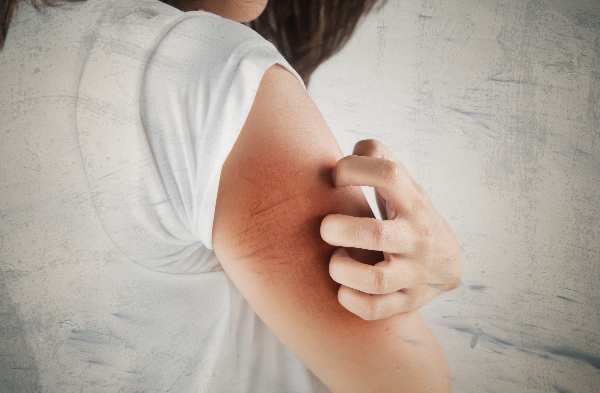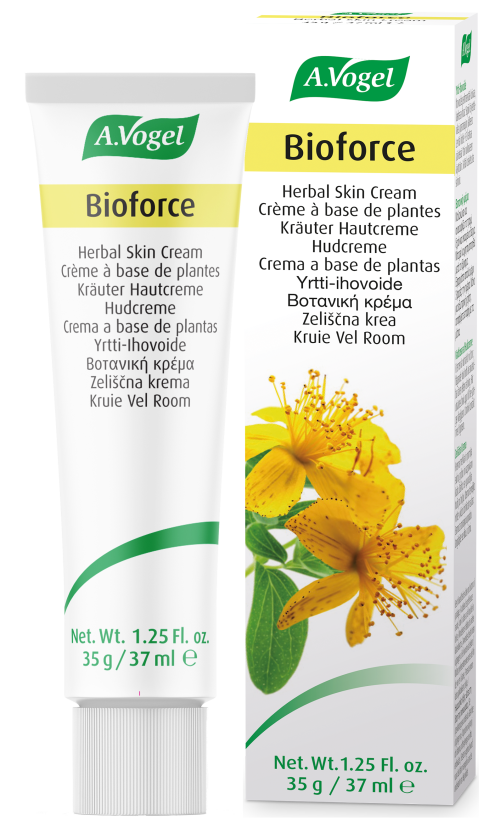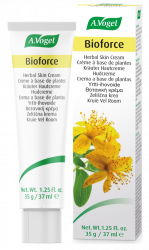What causes dry skin during pregnancy?

Unsurprisingly, as with most of the changes you will be experiencing, your hormones are often to blame for your dry skin. High levels of oestrogen can affect your skin, in addition to MSH, a melanocyte-stimulating hormone that also increases during pregnancy.
This can affect the pigmentation of your skin and you may notice more itchiness and irritation, particularly around the palm of your hands and the soles of your feet. It’s also worth considering the amount of growth that your body is currently going through, especially around your abdomen!
As your stomach loses its elasticity and starts to stretch, your production of sebum oil may decrease, paving the way for dry skin. Your body temperature will also naturally rise during this time which can also contribute towards itchiness and irritation, which in turn can trigger an episode of dry skin.
Can you develop eczema during pregnancy?

The correlation between pregnancy and eczema does exist but it can be tricky to define. Those that already suffer from the condition sometimes notice that they do experience a flare-up whilst other eczema patients say that their symptoms subside during pregnancy.
But what if you’ve never suffered from eczema before? Well some studies do indicate that you can experience an eczema flare up during pregnancy, despite previously never suffering from the condition. However, those that develop the condition have normally exhibited risk factors in the past or may already be vulnerable because of a pre-existing skin condition.1
Nevertheless, if you notice any symptoms developing you should speak to your doctor or midwife and they should be able to advise you on what treatments are safe during this time.
1https://www.everydayhealth.com/eczema/pregnancy-eczema.aspx
What can I do to treat my dry skin?

Understandably, knowing how to treat dry skin during pregnancy can be difficult. However, I would start with the basics – increasing your intake of fluids. You should naturally be drinking plenty of plain water during this time, especially since much of your body fluids will ultimately be transferred to your baby.
Most sources do recommend around 8-10 cups of plain water each day but this figure can fluctuate depending on your individual needs. Once you have your drinking habits under control, you could also look to your diet – sources of healthy fats and essential fatty acids can do the world of good for your skin! Some good foods sources might include oily fish, avocados, seeds and nuts.
What about topical creams? Moisturising is of the utmost importance but many high-street brands do contain a whole heap of unwanted chemicals that may only exaggerate your problem. I would always opt for a natural, organic skincare brand as these are likely to be kinder to your skin and contain fewer toxins. Those with high contents of vitamin E may be especially useful!
Our Bioforce Cream is very nourishing for dry skin, containing extracts of sage, calendula and Witch Hazel, allowing it to soothe rough patches of irritation. This product should be fine for pregnant women, however, I would always recommend checking with your doctor first just to be on the safe side!
You could also consider natural moisturisers such as olive oil or Shea butter which are excellent alternatives to shop-bought emollients. Both are chockfull of antioxidants and are great for nourishing your skin, soothing any signs of irritation or dehydration. I would try applying these lotions to damp skin as that will make them easier to absorb.
Finally, it’s important to avoid drying your skin out any further so try to avoid exposing your skin to dry air, or extremes in hot or cold. This can include piping hot showers, air conditioning or central heating systems. You could try investing in a humidifier to help convey more moisture into your indoor environment.
For more helpful hints and tips, please check out my other blog, 10 tips to comfort dry skin!
When should I go to the doctor?

Although dry skin is usually harmless during pregnancy, you may still have to keep an eye on it to make sure it doesn’t develop into a more serious condition. If you notice that the dry skin spreads from your abdomen to your arms or legs, it’s possible that you may be suffering from PUPPP.
PUPPP, or Pruritic Urticarial Papules and Plaques is a relatively minor condition that usually diminishes post-pregnancy, however it’s still worth reporting to your doctor or midwife. If you notice any of your symptoms worsening, or if you are in extreme discomfort it’s absolutely crucial that you let your distress be known!









